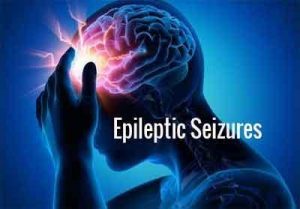- Home
- Editorial
- News
- Practice Guidelines
- Anesthesiology Guidelines
- Cancer Guidelines
- Cardiac Sciences Guidelines
- Critical Care Guidelines
- Dentistry Guidelines
- Dermatology Guidelines
- Diabetes and Endo Guidelines
- Diagnostics Guidelines
- ENT Guidelines
- Featured Practice Guidelines
- Gastroenterology Guidelines
- Geriatrics Guidelines
- Medicine Guidelines
- Nephrology Guidelines
- Neurosciences Guidelines
- Obs and Gynae Guidelines
- Ophthalmology Guidelines
- Orthopaedics Guidelines
- Paediatrics Guidelines
- Psychiatry Guidelines
- Pulmonology Guidelines
- Radiology Guidelines
- Surgery Guidelines
- Urology Guidelines
Levetiracetam effective alternative to Phenytoin for status epilepticus in children: Lancet

Levetiracetam could be an effective and safer alternative to phenytoin as a second-line treatment for Convulsive status epilepticus, according to a Lancet study.
The University of Liverpool and Alder Hey Children's Hospital Trust researchers have identified a 'user-friendly' treatment for Convulsive status epilepticus. It is supposed to be the most common life-threatening neurological emergency in children. The new study has been published in The Lancet.
Convulsive status epilepticus (CSE) is the situation when a tonic-clonic seizure doesn't stop either on its own or with anticonvulsants. It is the most common life-threatening neurological emergency in children. Every day in the UK, 87 people are diagnosed with epilepsy, affecting over 600,000 people. Many people with a new diagnosis of epilepsy will experience memory and other cognitive problems. The cause of these problems is unknown.
It has an annual incidence of 20 per 100?000 children and is the second most common reason for unplanned admissions to paediatric intensive care units (PICUs) in the UK.
Anti-epileptic drugs (AEDs), also known as anticonvulsants, are used to control seizures in people with epilepsy.
Currently, CSE is treated using an algorithm which incorporates 10 min intervals between treatments. Second-line treatment is given when CSE persists either after two doses of the first-line treatment, which is an anticonvulsant called a benzodiazepine, or the child's personalised emergency (rescue) treatment.
The anticonvulsant medication phenytoin has been used as the usual second-line treatment of CSE for several decades and is known to have rare but potentially dangerous side effects. However, some evidence suggests that another medication, levetiracetam could be an effective and safer alternative. To ascertain which treatment was safest and most effective the EcLiPSE Team, made up of doctors from Alder Hey and Bristol Children's Hospitals together with research teams from the Universities of Liverpool and the West of England, conducted a trial to compare the efficacy and safety of both drugs for second-line management of CSE.
The EcLiPSE Team is led by Professor Richard Appleton, a Merseyside paediatric neurologist based at the University of Liverpool's Department of Women's and Children's Health, and Alder Hey Children's Hospital Trust.
Between 2014 and 2018 the team conducted a randomised clinical trial involving 30 UK Emergency Departments and almost 300 children.
The results did not show that levetiracetam was better than phenytoin, in stopping CSE. However, overall the results suggest levetiracetam may be considered as an alternative treatment to phenytoin.
Professor Richard Appleton, said: "The EcLiPSE trial has given doctors new and unique evidence for the choice of anticonvulsant and how to best treat this childhood neurological emergency.
"Our results suggest that levetiracetam could be considered as an alternative treatment to phenytoin for second-line management of paediatric CSE. Possible benefits of levetiracetam over phenytoin include its ease of preparation and administration, minimal interaction with antiepilepsy and other drugs, and easy conversion to oral maintenance therapy. Further randomised clinical trial and meta-analysis data could help to confirm our results and might lead to levetiracetam being the preferred second-line anticonvulsant in children with benzodiazepine-resistant convulsive status epilepticus.
"The trial also highlights the importance of close and effective collaboration between two specialties in pediatrics, neurology and emergency medicine that will improve the care of children with epilepsy."
The study was supported by PERUKI (Paediatric Emergency Research in the UK and Ireland) and funded by the National Institute for Health Research (NIHR) HTA (Health Technology Assessment) programme.
For more details click on the link: DOI: 10.1016/S0140-6736(19)30724-X

Disclaimer: This site is primarily intended for healthcare professionals. Any content/information on this website does not replace the advice of medical and/or health professionals and should not be construed as medical/diagnostic advice/endorsement or prescription. Use of this site is subject to our terms of use, privacy policy, advertisement policy. © 2020 Minerva Medical Treatment Pvt Ltd